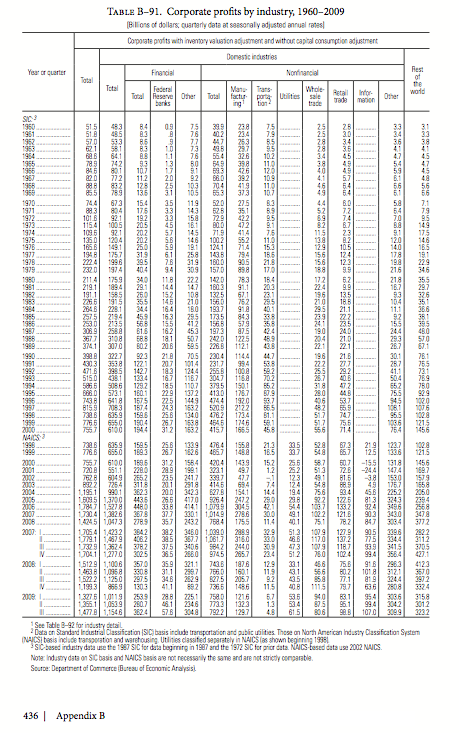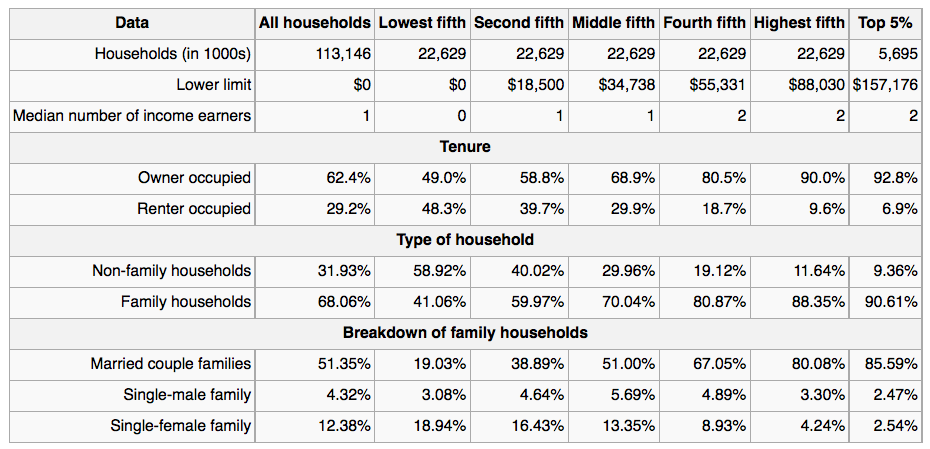American Manufacturing Profits Are the Same After Inflation As In 1960
The manufacturing sector in the United States generates the same inflation-adjusted profits it did in 1960. Surprised? Consider this:
- In 1960, the United States manufacturing sector generated total profits of $23.8 billion.
- In 2008, the United States manufacturing sector generated total profits of $175.5 billion.
If we adjust for inflation, 2008 profits from manufacturing should have been $171.17 billion, so we are actually ahead of the game a bit. The problem is, at the same time, manufacturing jobs have disappeared.
Unions and politicians have loudly blamed global trade policies (and make no mistake, the trade deficit is a very real problem), but the true trouble behind the manufacturing sector is that technology from automation, better software, and more powerful processors has resulted in most manufacturing jobs becoming unnecessary. Workers in auto companies and production plants are the 21st-century equivalents of whalers decrying the loss of their livelihood after whale populations declined in the 17th century. These jobs are never coming back.
Part of this pain has gone unnoticed by the masses because other sectors of the United States economy have blossomed and prospered in the past 50 years. Even though manufacturing still earns the same inflation-adjusted profits it did at its much-glorified height, other parts of the American economy – such as the Internet, which didn’t even exist in its current form – are so much more profitable that manufacturing now represents only 10% of so of the economy, down from the 28.3% peak high hit right after World War II.
As a result, when people talk about “rebuilding manufacturing”, they aren’t actually talking about manufacturing because it is still generating the same profit for “America, Inc.” as it did half a century ago. They are talking about manufacturing jobs that put a worker with only a high school diploma in the top 20% of household income. It will never happen again, people. It doesn’t matter who you put in the White House, what trade policies you put in effect, and what laws you pass.
“Top 20%! No, we just want good jobs!” I hear the chorus screaming. To be in the top 1 out of 5 households in the United States in terms of income only takes $88,030 per year.
A Look at the American Manufacturing Sector Through the Domestic Auto Companies
Take the major American car companies. According to The New York Times, “The base pay is about $28 an hour. If health care cost per worker average $12,000 per year, that adds in another $6 an hour. If the pension payment takes up 25 percent of base pay (an extremely high pension), that gets you another $7 an hour, bringing the total to $41 an hour.”

This is a table detailing the profits generated by each part of the economy of the United States of America. Click it to download the data as a PDF file.
With paid vacation, that is $85,280 for a job that requires only a high school education. A husband and wife working at one of these plants would make $170,560 putting them far above the top 5% of household income! It isn’t hard to see that is why Toyota is kicking the crap out of GM … and we didn’t even discuss the legacy pension costs, mostly because they were solved by the trust that was established a year or two ago (I’m not going to go into it, but it effectively closed off the past pension and health care benefits for a multi-billion dollar payment from the company).
The world economy has matured to the point that individual workers will never be able to earn income like that in the manufacturing sector again unless they have specific, hard-to-acquire skills such as in aerospace engineering. Now, if you want that type of income, you need to go into law, investment banking, become an executive at a software firm, or be a nurse anesthetist.
As I pointed out in an earlier column, if you are a white, average male with only a high school diploma, you not only have to struggle against technology improvements but also compete with China and Japan abroad and, here at home, women, African Americans, Jews, gays, lesbians, non-Christians and a host of other people who were denied fair and equal access to the workplace because of the irrational prejudice they experienced only decades ago. For civilization, this is good because we can tap everyone’s brain power so the best ideas win. For you, who previously enjoyed preferential treatment, your prospects are lowered unless you invest in yourself and make your skill set attractive to potential employers.



